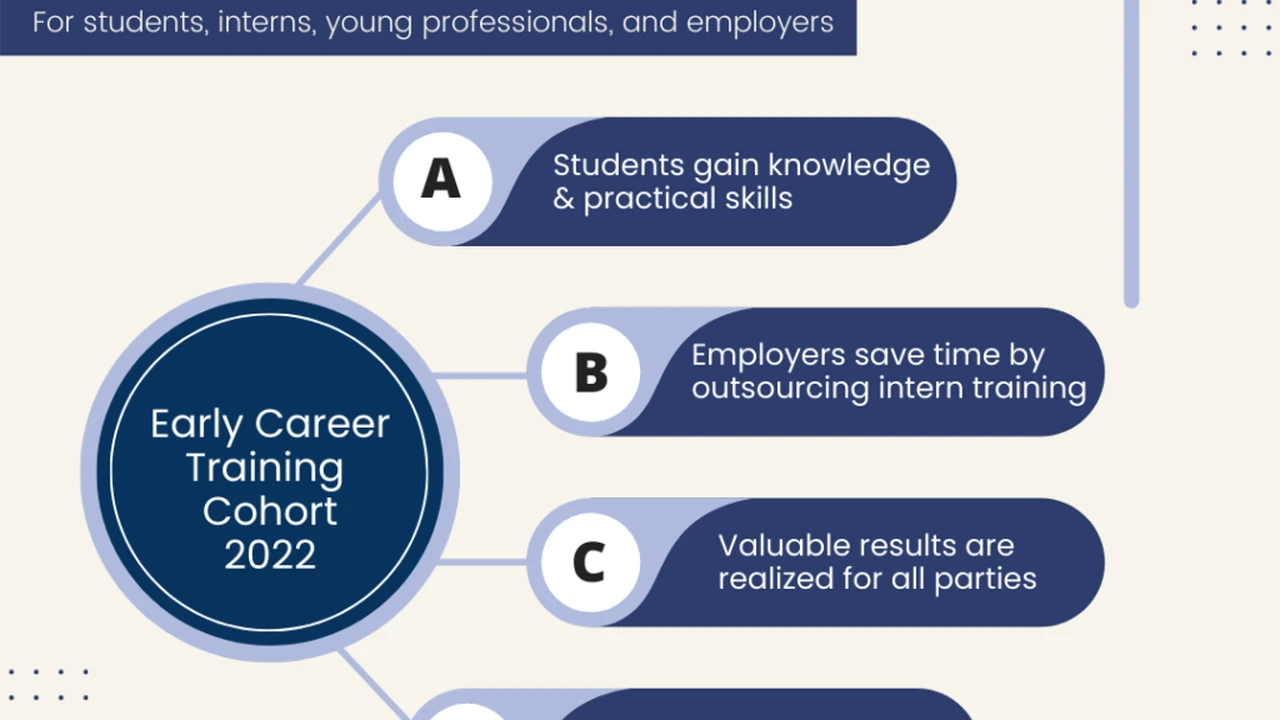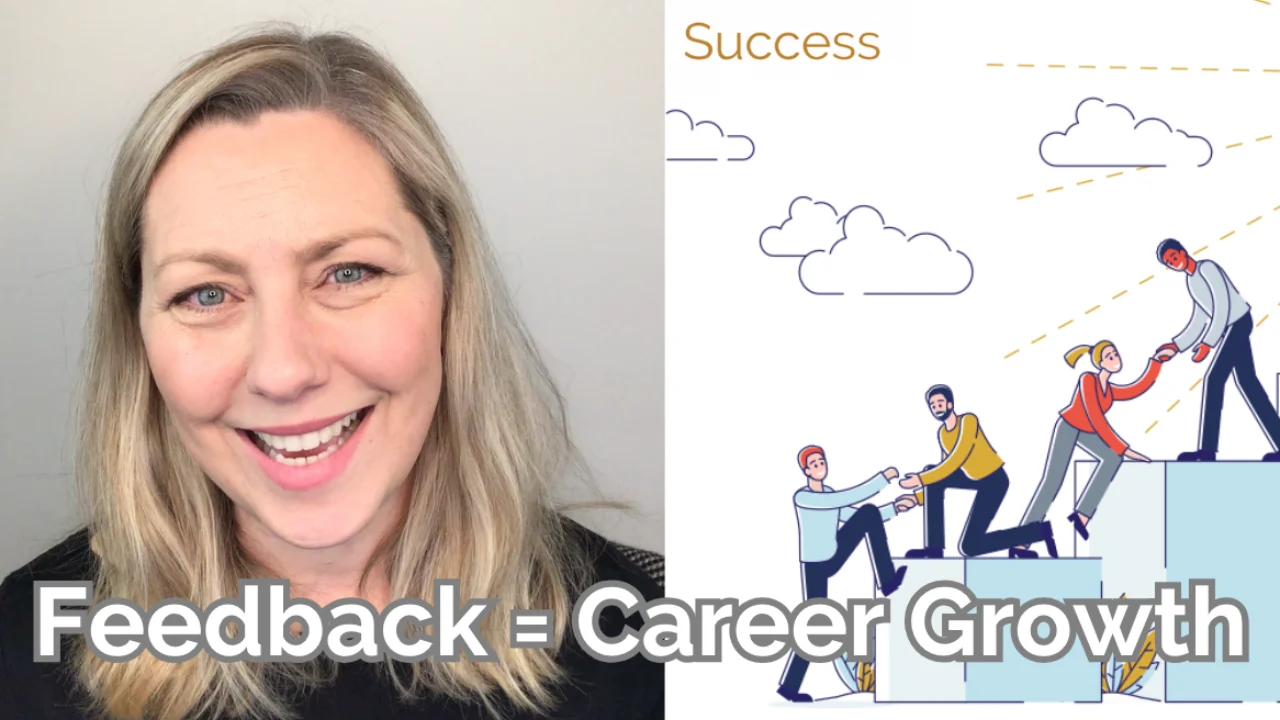7 Habits of Highly Effective Career Accelerators
Explore seven powerful habits adopted by individuals who successfully accelerate their careers.

7 Habits of Highly Effective Career Accelerators
Habit 1 Continuous Learning and Skill Acquisition
In today's rapidly evolving professional landscape, the ability to continuously learn and acquire new skills is not just an advantage; it's a necessity for career acceleration. Highly effective career accelerators understand that their education doesn't end with a degree. Instead, they embrace a mindset of lifelong learning, constantly seeking out new knowledge and competencies that can enhance their value in the marketplace. This habit involves more than just reading articles or watching webinars; it's about deliberate practice, application, and staying ahead of industry trends.
Why Continuous Learning Matters for Career Growth
The world of work is dynamic. Technologies emerge, industries shift, and job roles transform. Without continuous learning, skills can quickly become obsolete, leading to stagnation. Career accelerators recognize this and proactively invest in their intellectual capital. They understand that new skills open doors to new opportunities, higher responsibilities, and increased earning potential. Moreover, the act of learning itself fosters adaptability and problem-solving abilities, crucial traits for navigating complex career paths.
Strategies for Effective Skill Acquisition
To truly accelerate your career through learning, it's important to be strategic. This isn't about aimless consumption of information but targeted development. One effective strategy is to identify skills that are in high demand within your industry or desired career path. Look at job descriptions for roles you aspire to, and see what common skills are listed. Another approach is to focus on 'future-proof' skills, such as critical thinking, emotional intelligence, data literacy, and digital proficiency, which are valuable across various sectors.
Recommended Platforms and Tools for Learning
There are numerous resources available for continuous learning, catering to different learning styles and budgets. Here are a few highly recommended platforms:
- Coursera: Offers a vast array of courses, specializations, and degrees from top universities and companies. Many courses are free to audit, with paid options for certificates. For example, the 'Google Project Management: Professional Certificate' (around $39/month subscription) is excellent for those looking to enhance their project management skills, a universally valuable asset.
- Udemy: Known for its extensive library of user-generated courses on almost any topic imaginable, often at very affordable prices (courses can range from $10-$200, but frequent sales make them much cheaper). A popular course like 'The Complete Python Bootcamp From Zero to Hero in Python' (often around $15-$20 during sales) is perfect for acquiring foundational coding skills.
- LinkedIn Learning: Provides high-quality video courses taught by industry experts, covering business, creative, and technology topics. It's often included with a LinkedIn Premium subscription (around $29.99/month), offering a wide range of professional development content, such as 'Learning Excel 2019' or 'Strategic Thinking.'
- edX: Similar to Coursera, edX offers university-level courses, often with a focus on STEM fields. Many courses are free to audit, with verified certificates available for a fee (typically $50-$300). For instance, 'CS50's Introduction to Computer Science' from Harvard University is a fantastic free resource for beginners in programming.
- MasterClass: While more focused on creative and leadership skills taught by renowned experts, MasterClass (annual membership around $180) can provide unique insights into various fields, such as 'Leadership' with Anna Wintour or 'Negotiation' with Chris Voss.
When choosing a platform, consider your learning style, the depth of knowledge you seek, and your budget. Many platforms offer free trials or free courses, allowing you to test them out before committing.
Habit 2 Proactive Networking and Relationship Building
Career accelerators don't wait for opportunities to come to them; they actively build a robust network of contacts. This habit is about more than just collecting business cards; it's about cultivating genuine relationships based on mutual respect and value. A strong network can provide mentorship, open doors to new roles, offer valuable insights, and even lead to unexpected collaborations.
The Power of Professional Connections for Advancement
Networking is often cited as one of the most effective ways to find new job opportunities, but its benefits extend far beyond that. A well-maintained network can serve as a sounding board for new ideas, a source of industry trends, and a support system during challenging times. Career accelerators understand that their success is often intertwined with the success of those around them, and they actively seek to contribute to their network as much as they gain from it.
Strategies for Effective Networking
Effective networking is an ongoing process. It involves attending industry events, joining professional organizations, and leveraging online platforms. When networking, focus on quality over quantity. Instead of trying to meet everyone, aim to have meaningful conversations with a few key individuals. Follow up promptly, and look for ways to add value to your new connections, whether by sharing relevant articles, making introductions, or offering assistance.
Recommended Networking Tools and Platforms
- LinkedIn: The undisputed king of professional networking. It's essential for connecting with colleagues, industry leaders, and recruiters. Use it to join relevant groups, follow companies of interest, and share your professional achievements. Its 'People You May Know' feature and 'Alumni' tool are great for expanding your connections.
- Meetup: Excellent for finding local professional groups and events related to your industry or interests. Many groups host regular meetings, workshops, and social gatherings, providing opportunities for face-to-face networking.
- Eventbrite: A platform for discovering and registering for professional conferences, seminars, and workshops, both online and in-person. Attending these events is a prime opportunity to meet like-minded professionals and potential collaborators.
- CRM Tools (e.g., HubSpot CRM Free, Zoho CRM Free): While primarily for sales, these tools can be adapted to manage your professional network. They help you keep track of contacts, conversation history, and follow-up reminders, ensuring you don't lose touch with valuable connections. HubSpot CRM's free tier offers contact management, deal tracking, and meeting scheduling, which can be repurposed for networking.
Habit 3 Strategic Goal Setting and Planning
Highly effective career accelerators don't drift through their careers; they chart a clear course. This habit involves setting ambitious yet realistic goals and developing a detailed plan to achieve them. It's about having a vision for where you want to be and then breaking down that vision into actionable steps. Without clear goals, efforts can be scattered, and progress can be difficult to measure.
The Importance of Clear Career Objectives
Setting clear career objectives provides direction and motivation. It helps you prioritize tasks, make informed decisions, and stay focused on what truly matters for your advancement. Career accelerators use goals as a compass, guiding their learning, networking, and daily activities. They regularly review their progress, making adjustments as needed to stay on track.
Strategies for Effective Goal Setting
The SMART framework (Specific, Measurable, Achievable, Relevant, Time-bound) is a popular and effective method for setting goals. For example, instead of 'I want to get promoted,' a SMART goal would be 'I will complete the Project Management Professional (PMP) certification by Q2 next year to qualify for a Senior Project Manager role.' Break down large goals into smaller, manageable milestones. This makes the journey less daunting and allows for celebration of small victories along the way.
Recommended Planning Tools and Methodologies
- Asana: A popular project management tool that can be used for personal career planning. Its free tier allows you to create projects, tasks, set deadlines, and track progress. It's great for visualizing your career roadmap and breaking down large goals into actionable steps.
- Trello: Uses a Kanban-style board system, which is highly visual and intuitive for managing tasks and workflows. You can create boards for different career goals (e.g., 'Skill Development,' 'Job Search,' 'Networking') and move cards (tasks) through stages like 'To Do,' 'In Progress,' and 'Done.' The free version is robust enough for individual use.
- Notion: A versatile workspace that combines notes, databases, wikis, calendars, and reminders. It's highly customizable and can be used to build a comprehensive career dashboard, tracking goals, learning resources, networking contacts, and more. The free personal plan is very generous.
- Google Calendar/Outlook Calendar: Essential for scheduling dedicated time for learning, networking events, and working on career-related projects. Blocking out time ensures that these activities don't get pushed aside by daily demands.
- The 12 Week Year Methodology: This approach, detailed in the book 'The 12 Week Year' by Brian P. Moran and Michael Lennington, advocates for treating each quarter as a 'year' to foster urgency and focus. It involves setting annual goals, then breaking them down into 12-week plans with weekly execution and accountability.
Habit 4 Seeking and Acting on Feedback
Career accelerators are not afraid of constructive criticism; in fact, they actively seek it out. This habit involves regularly soliciting feedback from managers, peers, and mentors, and then using that feedback to identify areas for improvement and growth. They understand that an outside perspective can reveal blind spots and provide valuable insights that accelerate their development.
The Value of Constructive Criticism for Development
Feedback is a gift. It provides an external view of your performance, behaviors, and impact. Without it, it's difficult to know where you stand or what adjustments you need to make. Career accelerators view feedback not as a judgment, but as data points for improvement. They are open to hearing difficult truths and are committed to acting on them.
Strategies for Soliciting and Utilizing Feedback
Don't wait for your annual performance review. Proactively ask for feedback after projects, presentations, or significant interactions. Be specific in your requests: 'What could I have done better in that presentation?' or 'How could I have handled that client situation more effectively?' Listen actively without becoming defensive. After receiving feedback, reflect on it, identify actionable steps, and then implement those changes. Follow up with the person who gave you feedback to show you've taken it seriously and to discuss your progress.
Recommended Feedback Frameworks and Tools
- The SBI (Situation-Behavior-Impact) Framework: This framework helps both givers and receivers of feedback. When giving feedback, describe the Situation, the specific Behavior observed, and the Impact of that behavior. When receiving, you can ask for feedback using this structure to get clear, actionable insights.
- 360-Degree Feedback Tools (e.g., SurveyMonkey, Google Forms): While often used in formal HR processes, you can adapt these for informal 360-degree feedback. Create a simple survey asking peers, managers, and even direct reports for anonymous feedback on specific competencies or behaviors. SurveyMonkey offers a free basic plan, and Google Forms is completely free.
- Regular 1-on-1 Meetings: Schedule regular check-ins with your manager and key mentors. These dedicated times are perfect for discussing performance, seeking advice, and asking for specific feedback on your work and professional development.
- Journaling/Self-Reflection: Before seeking external feedback, engage in self-reflection. What do you think went well? What could have been better? This internal assessment prepares you to receive external feedback more effectively and helps you identify your own areas for growth.
Habit 5 Cultivating a Growth Mindset
At the core of every career accelerator is a growth mindset. This habit, popularized by Carol Dweck, is the belief that one's abilities and intelligence can be developed through dedication and hard work. Instead of viewing challenges as insurmountable obstacles, individuals with a growth mindset see them as opportunities to learn and improve. They embrace failure as a learning experience, not a definitive end.
Fixed vs Growth Mindset Impact on Career
A fixed mindset believes that abilities are innate and unchangeable. This can lead to avoiding challenges, giving up easily, and feeling threatened by the success of others. Conversely, a growth mindset fosters resilience, a love of learning, and a willingness to take on new challenges. For career acceleration, a growth mindset is crucial because it enables individuals to adapt to change, acquire new skills, and persevere through setbacks.
Strategies for Developing a Growth Mindset
Developing a growth mindset is an ongoing process. Start by recognizing when you're operating from a fixed mindset (e.g., 'I'm not good at this'). Then, reframe those thoughts into growth-oriented statements (e.g., 'I can learn how to do this if I put in the effort'). Embrace challenges, learn from mistakes, and celebrate effort and progress, not just outcomes. Seek out opportunities to step outside your comfort zone and acquire new skills.
Recommended Resources for Mindset Development
- 'Mindset: The New Psychology of Success' by Carol S. Dweck: This foundational book explains the concept of fixed and growth mindsets and provides practical advice on how to cultivate a growth mindset. It's a must-read for anyone serious about personal and professional development.
- Meditation and Mindfulness Apps (e.g., Calm, Headspace): These apps can help you develop self-awareness and emotional regulation, which are crucial for recognizing and shifting your mindset. They teach you to observe your thoughts without judgment, allowing you to challenge limiting beliefs. Calm offers a free basic version, and Headspace has a free trial.
- Positive Affirmations: Regularly repeating positive affirmations related to learning, resilience, and capability can help rewire your brain over time. Examples include 'I am capable of learning anything I set my mind to' or 'Challenges help me grow stronger.'
- Mentorship and Role Models: Surrounding yourself with individuals who embody a growth mindset can be incredibly inspiring and influential. Observe how they approach challenges and setbacks, and learn from their resilience.
Habit 6 Effective Time Management and Prioritization
Time is a finite resource, and career accelerators treat it as such. This habit involves mastering the art of time management and prioritization, ensuring that their most valuable hours are spent on activities that yield the greatest return on investment for their career goals. They understand that being busy doesn't equate to being productive, and they focus on impact over activity.
Maximizing Productivity for Career Advancement
Effective time management allows career accelerators to juggle multiple responsibilities, dedicate time to learning and networking, and still maintain a healthy work-life balance. By prioritizing tasks based on their importance and urgency, they ensure that critical projects are completed on time and that their efforts are aligned with their strategic career objectives.
Strategies for Efficient Time Management
Several strategies can help you manage your time more effectively. The Eisenhower Matrix helps categorize tasks into 'Urgent/Important,' 'Important/Not Urgent,' 'Urgent/Not Important,' and 'Not Urgent/Not Important.' The Pomodoro Technique involves working in focused 25-minute intervals followed by short breaks. Batching similar tasks together (e.g., responding to emails, making calls) can also improve efficiency. Most importantly, learn to say 'no' to tasks that don't align with your priorities.
Recommended Time Management Tools and Techniques
- Todoist: A powerful and intuitive task manager that helps you organize your to-do list, set deadlines, and prioritize tasks. Its natural language input makes it easy to add tasks quickly. The free version is excellent for personal use.
- Forest: Stay Focused: This app uses gamification to help you stay focused. When you want to concentrate, you plant a virtual tree. If you leave the app, the tree dies. It's a fun way to encourage deep work sessions. (Paid app, but highly effective for focus).
- RescueTime: This tool runs in the background of your computer and tracks how you spend your time on various applications and websites. It provides detailed reports, helping you identify time-wasting habits and optimize your workflow. It has a free lite version.
- The Eisenhower Matrix: A simple yet powerful decision-making tool for prioritizing tasks. Draw a 2x2 grid and label the quadrants: Do (Urgent/Important), Decide (Important/Not Urgent), Delegate (Urgent/Not Important), Delete (Not Urgent/Not Important).
- Calendar Blocking: Dedicate specific blocks of time in your calendar for specific tasks or types of work. This ensures that important activities, like skill development or strategic planning, get dedicated attention.
Habit 7 Building Personal Brand and Visibility
Career accelerators understand that talent alone isn't enough; you also need to be seen and recognized for your contributions. This habit involves actively building a strong personal brand and increasing your professional visibility. It's about showcasing your expertise, achievements, and unique value proposition to a wider audience, both within and outside your organization.
The Importance of Personal Branding for Recognition
A strong personal brand differentiates you from others and positions you as an expert in your field. It builds trust and credibility, making you the go-to person for certain tasks or opportunities. Increased visibility means more opportunities for promotions, speaking engagements, and new career paths. It's about controlling your narrative and ensuring that others perceive you in the way you want to be perceived.
Strategies for Enhancing Professional Visibility
There are many ways to build your personal brand and increase visibility. Start by defining your unique value proposition: What makes you stand out? Then, consistently communicate that value. This can involve speaking at industry conferences, writing articles or blog posts, contributing to open-source projects, or actively participating in professional online communities. Within your organization, volunteer for high-visibility projects, mentor junior colleagues, and share your successes with your manager and team.
Recommended Tools and Platforms for Personal Branding
- LinkedIn: Beyond networking, LinkedIn is crucial for personal branding. Optimize your profile with a professional headshot, a compelling headline, and a detailed summary of your skills and achievements. Regularly share insights, comment on industry news, and publish articles to showcase your expertise.
- Personal Website/Portfolio: For many professions (e.g., designers, writers, developers, marketers), a personal website or online portfolio is essential. Platforms like WordPress.com (free basic plan, paid for custom domains/more features), Squarespace (paid, around $16-$26/month), or Behance (free, for creative portfolios) allow you to showcase your work, testimonials, and professional journey.
- Medium/Substack: These platforms are excellent for sharing your thoughts, insights, and expertise through articles and newsletters. They allow you to build an audience and establish yourself as a thought leader in your niche. Both offer free publishing options.
- Canva: A user-friendly graphic design tool (free basic version, paid Pro version around $12.99/month) that helps you create professional-looking visuals for your social media posts, presentations, and personal branding materials, even if you're not a designer.
- Public Speaking Opportunities: Look for opportunities to speak at local meetups, industry webinars, or even internal company events. Platforms like Toastmasters International (membership fees vary by club, typically around $45 every six months) can help you hone your public speaking skills.
By consistently practicing these seven habits, you're not just working hard; you're working smart, strategically positioning yourself for continuous growth and accelerated success in your career.
:max_bytes(150000):strip_icc()/277019-baked-pork-chops-with-cream-of-mushroom-soup-DDMFS-beauty-4x3-BG-7505-5762b731cf30447d9cbbbbbf387beafa.jpg)





